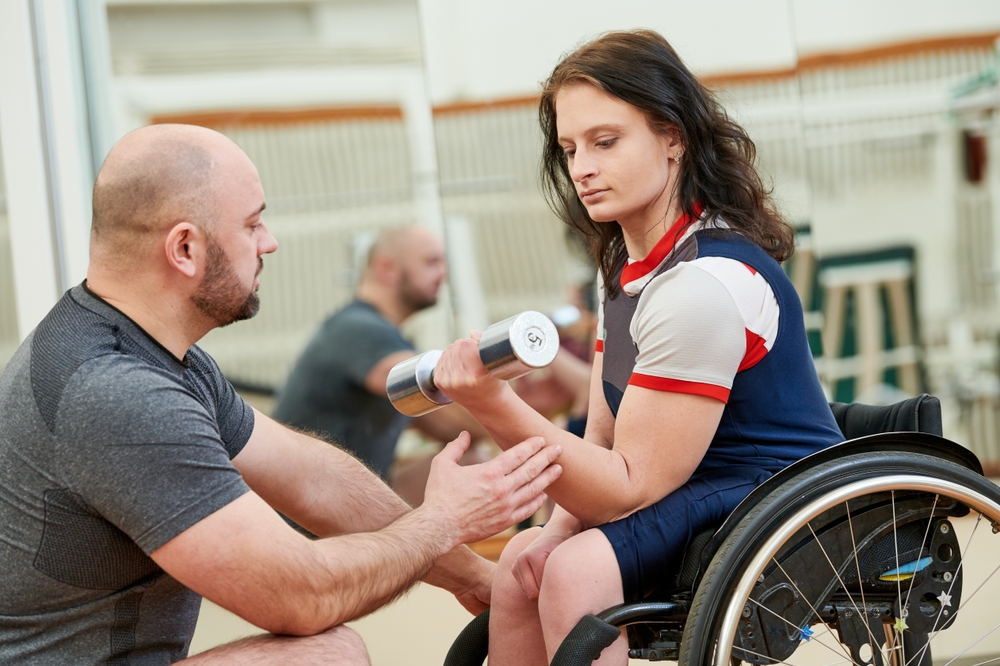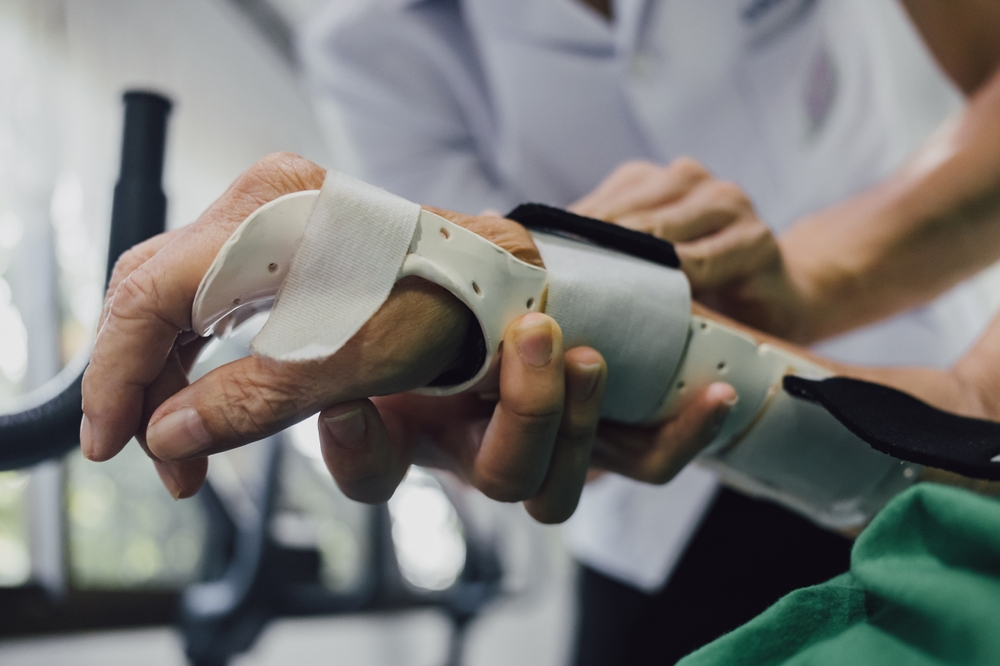Make an Appointment
What is Exercise Physiology?
Exercise physiology is a specialisation of skills within the field of kinesiology and is one of the allied health professions. Exercise physiology studies your body’s response and adaptations to exercise and movement.
It’s similar to and can often be confused with kinesiology, exercise science, sports medicine, and physical therapy (referred to as physiotherapy). Though these sciences share some common bonds, exercise physiology is a unique profession.
Exercise physiology provides a unique method of working one-on-one with patients or clients. Additionally, there are many benefits of exercise physiology.
An exercise physiologist’s work can range from crafting exercise and movement plans for patients with chronic disease to helping athletes reach peak performance to determining the most effective way for your body to get in shape.
What Does an Exercise Physiologist Do?
There are many services that exercise physiologists provide, including behavioural coaching, exercise counseling, health education, and physical rehabilitation.
Exercise physiologists do not provide hands-on joint manipulation, medical diagnoses or pharmaceutical prescriptions.
An accredited exercise physiologist, or EAP, is a university-qualified allied health professional who has studied and is certified to craft, supervise and evaluate exercise interventions, particularly for those with chronic health conditions, injuries or disabilities.
There are requirements to maintaining an exercise physiologist accreditation, such as:
- Maintaining first aid and CPR certificates
- Maintaining professional indemnity insurance
- Completing annual continuing professional education programs
- Uphold a code of professional conduct and ethical practice
The goal of an exercise physiologist is to guide you through appropriate activity to a healthier lifestyle. They’ll prescribe an exercise regime explicitly suited for your body and needs, supervise your performance and provide best practices for continuing your exercise routine at home after a session.
Accredited exercise physiologists practice in many different settings. These include:
- Hospitals
- Clinics
- Aged Care Facilities
- Fitness Centres
- Rehabilitation Centres
- Gymnasiums
- Sports Organisations & In Home
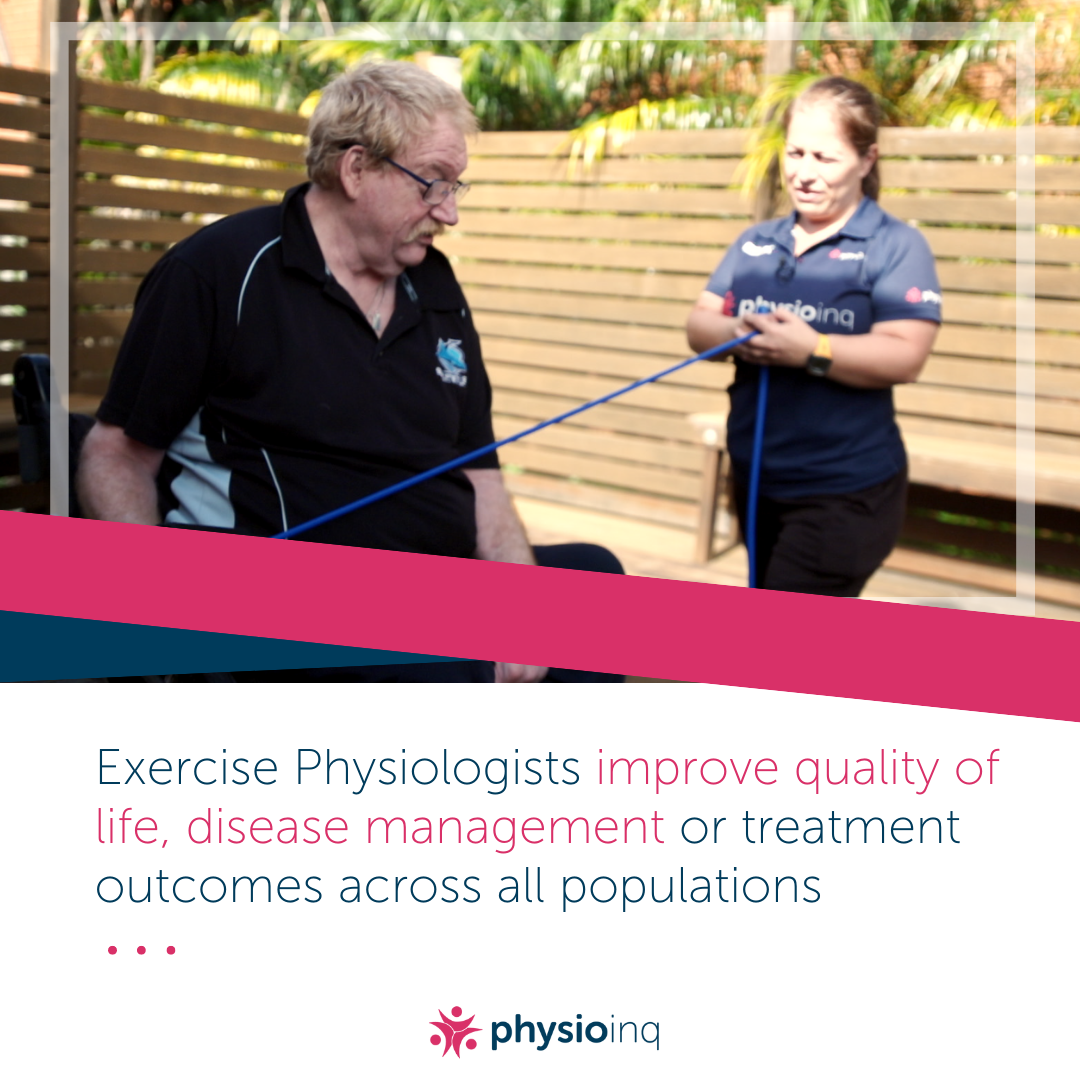
Benefits of Exercise Physiology
There are many benefits of exercise physiology. Regular exercise, in general, positively benefits nearly all organs in the body.
Exercise can regulate blood sugar, improve circulation, boost your mood, enhance your memory and improve the health of your heart, lungs, joints, and bones.
Exercise physiology uses exercise as medicine, and is in fact, a recommended treatment for different types of cardiovascular, neurological, metabolic, and psychiatric diseases.
There are three main benefits of exercise physiology as treatment, rather than creating your own exercise regime to follow.
Evidence
Exercise physiologists are university-accredited health professionals who have studied various sciences. They strictly follow research-based and scientifically backed guidelines and strategies when developing client exercise plans.
Education
Exercise physiologists are up-to-date on advancements and developments within their field. They are required to take annual continuing education courses. Their goal is to pass their knowledge onto you to give you the power to take control of your exercise. An exercise physiologist will teach you the skills to move your body most effectively after sessions are completed.
Experience
Not only do exercise physiologists undergo a 4-year degree and continuing education, but they also must conduct a series of internships before they are granted accreditation. They have a wealth of practical experience in their field.
In particular, if living with a chronic illness, injury, or disability, the guidance of an appropriately trained professional who is knowledgeable about your specific condition is invaluable. Creating an exercise plan for yourself, rather than consulting an exercise physiologist, could potentially lead to more significant injury.
If you’re living with a disability, the benefits of exercise physiotherapy are even greater. Working with an AEP can provide:
- Increased mobility
- Greater pain management
- Improved balance
- Increased strength and energy
- Gained independence
Exercise Physiologist vs Physical Therapist (Physiotherapist)
A common question asked is what is the difference between an exercise physiologist vs a physical therapist? While both have a similar end goal for their patients, their treatment paths are very different.
An exercise physiologist develops your personal exercise routine as an intervention to an already diagnosed condition, disability or illness, and continually guides you hands-off while you gain comfort. The goal is to educate you and provide you with the tools to continue with your personal exercise routine after leaving your sessions.
A physical therapist (physiotherapist) uses hands-on techniques to rehabilitate your injury. They assess and diagnose injury and provide treatment through modalities such as joint manipulation, soft tissue massage, dry needling and rehabilitation programmes.
Often, a physical therapist diagnoses an injury and creates a treatment plan to minimise or eradicate pain. An exercise physiologist creates a movement plan to manage chronic disease or injury in an attempt to optimise or restore physiological functioning. There may be a focus on behavioural or lifestyle changes to improve your overall quality of life.
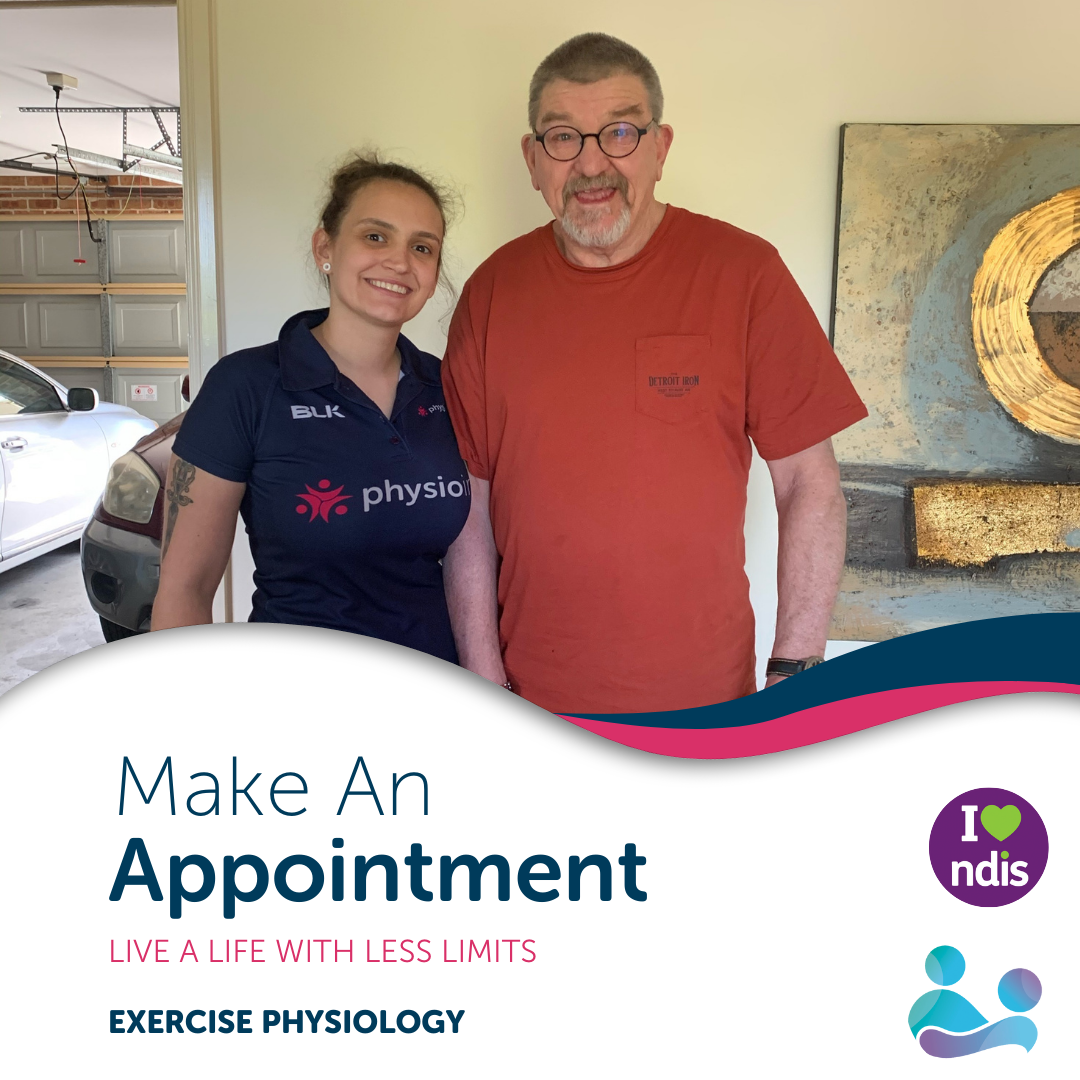
Does Medicare Cover Exercise Physiology?
Yes, you can obtain a Medicare rebate for Exercise Physiology through the Chronic Disease Management, or CDM, program.
Firstly, you need to obtain a diagnosis and referral from a GP. You must have suffered from a chronic condition for more than three months. Your GP must then refer you to an exercise physiology clinic through the appropriate referral form.
There is no list of eligible conditions for CDM in an attempt to provide GPs with the freedom to coordinate appropriate care for patients with complex conditions. Your GP’s health assessment will determine if you would benefit from a Medicare CDM plan.
Medicare’s CDM program covers five rebated sessions conducted by a referred allied health practitioner per year. These sessions do not need to be done with the same practitioner. Currently, Medicare’s CDM program rebates $53.80 per consult.
What Does RE Stand For in Exercise Physiology
In exercise physiology, RE stands for resistance exercise. Resistance exercise aims to increase your muscular strength by working against a force, or resistance.
Though this may be achieved using free weights and weight machines, body weight is a common force used to achieve resistance.
Resistance exercise is a successful countermeasure against declines in mobility and chronic disease.
When Should You Refer to an Exercise Physiologist?
Five of the most common reasons you should refer to an exercise physiologist include:
1. You have a chronic condition
If you’re already living with or are at risk of developing a chronic condition, the knowledge provided by an AEP can help you manage and prevent pain or discomfort. With an advanced understanding of your condition and its complexities, an AEP can help you get active as safely as possible.
2. You have chronic pain
Chronic pain, or pain that persists for more than 3 months, can be very different from injury. Seeing an AEP can give you pain management techniques and improved quality of life.
3. You are pregnant or post-natal
Pregnancy and childbirth can lead to chronic pain or injury in women and some exercises can increase pain or further exacerbate injuries, particularly in the abdominal and pelvic floor muscles. An AEP can provide a safe exercise program to safely regain mobility and strengthen weakened muscles.
4. You have depression or mental illness
AEPs are uniquely qualified to prescribe movement plans that will improve your mental health while being accessible enough to perform at any point on your journey to mental wellness.
5. You are living with one of the following diseases:
- Cardiovascular disease
- Pulmonary disease
- Metabolic disease
- Neurological disease
- Musculoskeletal disease (arthritis, osteoporosis, acute and/or chronic musculoskeletal issues)
An AEP can craft an appropriate exercise plan to improve your quality of life while taking the complexities of your disease into account.
If you’re living with a chronic condition, disease or disability, or you’re seeking to recover from pain or injury, an AEP can help guide you through carefully considered movement to a better quality of life.
Our exercise physiologists can guide you towards your healthier, fuller life. Book an appointment at Physio Inq to explore the pain management options available to you.
Locate your team of local Physio Inq In Home OR In Clinic exercise physiologists across Australia today. For more Information on Physio Inq's exercise physiology services, please visit the below links
- Mobile & In Home Exercise Physiology
- Aged Care Exercise Physiology
- Telehealth Exercise Physiology
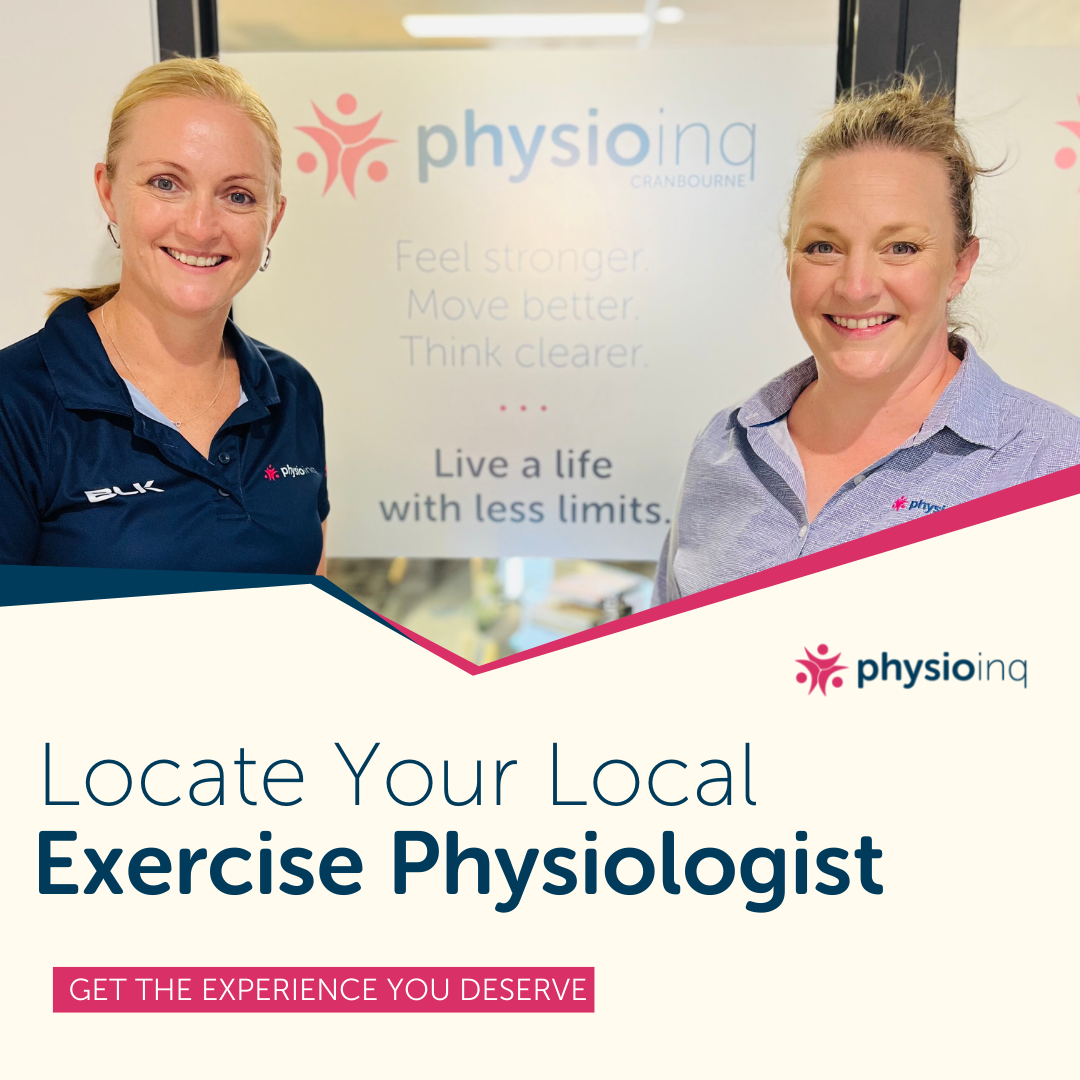
Date Published: Tuesday, July 19, 2022
Locate a NDIS Exercise Physiology
Service Near me
Get the experience & convinence you deserve to support your or a loved one's allied health needs.
Our NDIS Exercise Physiology team are currently serving & taking appointments in the following states and regions in Australia:
New South Wales
- Blacktown
- Blue Mountains
- Campbelltown And Macarthur
- Canterbury-Bankstown
- Eastern Suburbs Sydney
- Georges River
- Hawkesbury
- Inner East Sydney
- Inner West Sydney
- Lower North Shore
- Newcastle
- Northern Beaches
- North Sydney
- Parramatta
- Penrith
- South West Sydney
- Sutherland Shire
- Sydney CBD
- The Hills Shire
- Upper North Shore
- Waverley
- Wollongong
Tasmania
Victoria
Need to get into direct contact with ur Client Services team? We're all ears. Call our team directly on 1300 731 733



